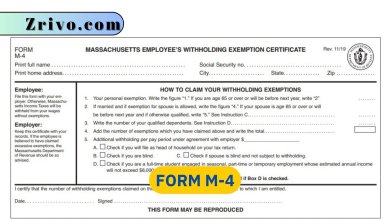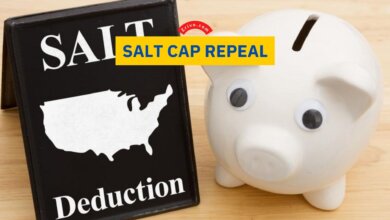Tax-Saving Investments: Where to Put Your Money?
There’s no way to avoid paying taxes, but being tax-efficient can help limit Uncle Sam’s bite. Here are a few strategies to consider.

Taxes are a part of life, and while no one likes handing money over to the government, everyone is responsible for paying taxes. However, there are ways to minimize your tax burden. These strategies can help you reduce the amount of money you pay in taxes and keep more of your investment returns working for you. There are a variety of ways to reduce taxes when investing, including using tax-advantaged accounts and choosing the right investments. One of the most effective strategies is to use a buy-and-hold investment approach, which can help minimize taxable gains over time. This strategy also helps maximize returns because research has shown that passive investing tends to outperform active investing over long periods of time.
There are numerous tax-efficient investment options to consider, from mutual funds and ETFs to fixed-income securities like municipal bonds. Municipal bond income is exempt from federal taxes and often free from state and local tax as well. These investments can be a great option for investors in high tax brackets, as their after-tax returns are typically better than those of comparable taxable bonds.
The key to minimizing your investment taxes is knowing where to invest. While it is unlikely you will be able to avoid taxes entirely, it is possible to significantly decrease the amount of your investment income that gets taxed by using tax-advantaged accounts and investments. These include retirement accounts, health savings accounts, and 529 plans. In addition, many investments can be made tax-efficient by investing in municipal bonds. These investments offer a variety of tax benefits, including being exempt from federal and state income taxes.

Tax-saving Fixed Deposits
Another popular option is to invest in a tax-saving fixed deposit. These deposits can be used to qualify for a deduction under section 80C of the Income Tax Act and are available at banks and post offices. However, these deposits have a five-year lock-in period, and interest earned is taxable. Another option is to invest in a tax-efficient mutual fund. These funds can be invested in various assets, including stocks and bonds, and they are often available through brokerage firms or online. These funds offer a variety of tax benefits, including allowing investors to defer taxes and receive a lower capital gains rate.
Brokerage Account
A brokerage account is a great option for taxable investments. It offers a wide range of options for investing, from individual stocks to mutual funds and ETFs. But it’s important to keep in mind that these accounts don’t offer the same tax benefits as other types of investments, such as those held in an IRA or 401(k).
Mutual Funds
Another option is to invest in a tax-efficient mutual fund. These funds can be invested in a variety of assets, including stocks and bonds, and they are often available through brokerage firms or online. These funds offer a variety of tax benefits, including allowing investors to defer taxes and receive a lower capital gains rate.

529 Plans
If you’re thinking of saving for retirement or education costs, a 529 savings plan may be worth considering. These tax-advantaged investment accounts allow parents to save for their children’s college tuition. Distributions from these accounts are generally tax-free at the federal level, and some states also offer tax-exempt versions of these bonds.
Life Insurance Policies
Other tax-efficient investments include life insurance policies, which can provide significant savings and come with various tax benefits. In addition, the National Pension Scheme (NPS) is a popular income tax-saving investment that allows individuals to set aside money towards retirement with exemptions up to Rs 1.5 lakh.





